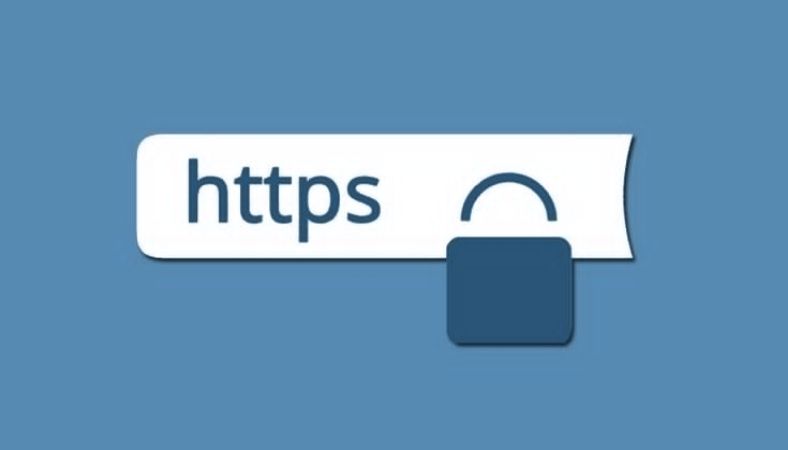Article Summary
In this article, we will look at the significance of HTTPS for SEO and the impact it has on the ranking of your website’s page on search engines. HTTPS is an encryption protocol for security that secures data exchanged between a web browser and server, providing security in communications.
Not only does it safeguard the user’s information, but it also improves the trust and credibility of your website. We’ll discuss the ways that HTTPS affects SEO rankings and the technical aspects as well as the benefits to user experience. We’ll also cover why and how to switch from HTTP to HTTPS for future websites. Installing SEO plugins is one of the simplest methods.

What is HTTPS?
If you surf the internet, you will notice some websites use HTTP and others HTTPS. What is the difference between them? The key difference stands in security.
- HTTP is widely used as a protocol for information exchange on the internet. However, it is not encrypted, which makes it easy for hackers to steal data.
- HTTPS (Hypertext Transfer Protocol Secure) is an encryption method used on the internet. It encrypts data shared between a web browser and a server using SSL or TLS protocols.
For modern websites, having HTTPS is a critical deciding element for SEO rankings. Let’s discuss why HTTPS is important for SEO.
Why HTTPS Matters for SEO
This year, Google implemented a dramatic shift by declaring that HTTPS will be an important ranking signal. This was a clear indication of the importance of security for websites for optimizing search results. Since the time, HTTPS has become a crucial factor that affects ranking on the search engines, and in particular Google.
Boosting Trust and Credibility
Whenever users open a website and see the lock symbol placed along the url, it proves that the site is indeed safe. The small symbol can be a game changer for users’ decision online. Without the use of HTTPS, users are likely to refrain from providing sensitive data including but not limited to a credit card, username and passwords, and other personal information.
Part of Google’s ongoing mission is to guarantee users have a safe browsing experience on their site. Google aims to offer secure services protecting breaches with surveillance malware through HTTPS.
Direct Impact on SEO Rankings
Google has verified that HTTPS is an important ranking factor. Websites that utilize HTTPS might receive a slight improvement in their ranking when compared with the HTTP counterparts. If two sites have the same content and high quality and content, the HTTPS site is likely to rank higher on search results webpages (SERPs).
Although HTTPS might not be the primary SEO ranking element (content content quality, the backlinks and other aspects of technical SEO are more important) However, it can still contribute positively to the SEO strategy you employ.
Improved User Experience
Experience of users is a key aspect of ranking for Google. HTTPS helps improve user experience for users by ensuring that their’ information is kept safe and private. With HTTPS users can browse freely without having to worry about their personal information being accessed.
Furthermore, HTTPS can lead to quicker loading times, since numerous new browsers, as well CDNs (Content Delivery Networks) optimise HTTPS websites for speed. A website that loads quickly is a essential element of a pleasant user experience, and consequently improved SEO rankings.
The SEO Benefits of HTTPS
HTTPS does more than just increase security, it also offers many SEO advantages. Here are a few of the benefits:
Better Security Signals for Search Engines
Google is looking to rank websites that provide a safe experience. If you utilize HTTPS this sends an important signal to the search engines that your site is secure. This can aid in ranking better.
Enhanced Mobile Experience
HTTPS is a must in mobile device. Since mobile-first indexing is becoming the standard, websites that offer an efficient, secure user experience will be more successful. Since a large portion of mobile users visit websites through unsecure networks HTTPS assures the security of information transferred.
Increased Conversion Rates
Websites using HTTPS have more conversion rates when compared to those that rely on HTTP. This is due to the fact that users feel more comfortable submitting personal details, resulting in higher performance in the important conversion measures.
Improved Analytics Data
When you use HTTPS, your analytics information will be more precise. Secure HTTP websites could be unable to retrieve referrer information, making it difficult to trace the origin the traffic. HTTPS guarantees that this information is kept safe, which aids in making educated choices regarding how to market.
Better Compatible with browser features
Google Chrome as well as other web browsers have begun notifying HTTP web sites with “Not Secure” in their address bar. This can affect reputation of the website. However, HTTPS ensures that your website is compatible with current technologies for web, including HTTP/2, as well as other enhancements.
How to Change From HTTP to HTTPS
The transition to HTTP changing to HTTPS is a simple procedure, but it will need careful planning to avoid interruptions. The steps to follow:
Obtain an SSL Certificate
The first step to enable HTTPS is to obtain one SSL certificate. It is available from an authorized certification authority (CA). Numerous web hosting companies offer SSL certificates. They are often offered for at no cost for the initial year. You’ll have to install this certificate on your website server.
Update Internal Links
After your SSL certificate is in place You must then make sure that all internal links on your website to conform to that you are using the HTTPS protocol. This means updating all links in your site’s code, which includes images, scripts, as well as internal URLs and redirecting them to HTTP and HTTPS.
Set Up 301 Redirects
Set up 301 redirects to HTTP and HTTPS for websites so that users accessing the older HTTP version of your site will be redirected seamlessly to the safer HTTPS version. These redirects provide a better user experience, and from an SEO perspective, it helps in better indexing of those HTTPS versions.
Update Google Search Console and Analytics
Once you’ve implemented HTTPS on your site ensure that you make sure to update Google Search Console and Google Analytics to reflect the new version. Include to the HTTPS variant of your website as a new property to both of these tools to monitor its performance properly.
Monitor Your Site’s Performance
After the transition to HTTPS is completed Be sure to keep watchful of your website’s performance. Look for any mistakes on your Google Search Console or Analytics and make sure that your pages are properly indexed.
HTTPS and SEO in 2025: What’s Next?
With time, the importance of HTTPS will only increase concerning SEO. Google and other search engines are expected to continue prioritizing secure sites, especially with rising concerns over privacy and data security. Upgrading to HTTPS now protects your site from future shifts in the digital landscape.
The increasing implementation of AI and machine learning technologies in search engines will prioritize user safety. Websites that provide a secure and fast user experience are expected to have improved rankings.
Conclusion
As we’ve established, the HTTPS feature is not an added benefit for SEO; rather, it becomes a necessity for any website with a hopeful outlook for 2025. In addition to trust from users, with HTTPS, security increases for your website and SEO ranks. While the switch from HTTP to HTTPS requires some effort, the long-term value and performance upside for user experience on the site is well worth it.
If you still haven’t made the switch to HTTPS, now is the right time. It will strengthen the visibility of your website for search engines. It also makes your website easier to secure. So, do not hesitate!
Frequently Asked Questions (FAQs)
Does HTTPS impact my SEO rank?
Yes, it can be a signal of rank used by Google. Although it may not be the most important factor in ranking, it does give little SEO benefits when compared to HTTP-based websites.
How can I change from HTTP to HTTPS?
To switch from HTTP to HTTPS, you need to acquire an SSL certificate, update your internal links, set up 301 redirects, and then adjust the settings in Google Search Console and Analytics to reflect these changes.
Is HTTPS essential for e-commerce websites?
Yes! HTTPS is vital for eCommerce websites since it guarantees secure transactions, increases trust among customers, and is crucial to rank SEO-wise.
Can I utilize HTTP for my website and achieve a high ranking?
HTTP is still in use; Google prioritizes HTTPS websites to ensure security and trust among users. It’s best for long-term success to change to HTTPS.
How does the impact of HTTPS affect the user satisfaction?
HTTPS provides secure, encrypted communications, which help secure user data and create trust, which improves general user satisfaction.
Will my site be affected by the switch to HTTPS?
No, as long as you have set the 301 redirects correctly, the traffic you get and your SEO rankings will not be affected or may even see improvement as time passes.

